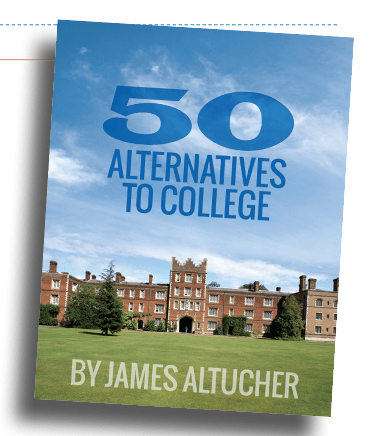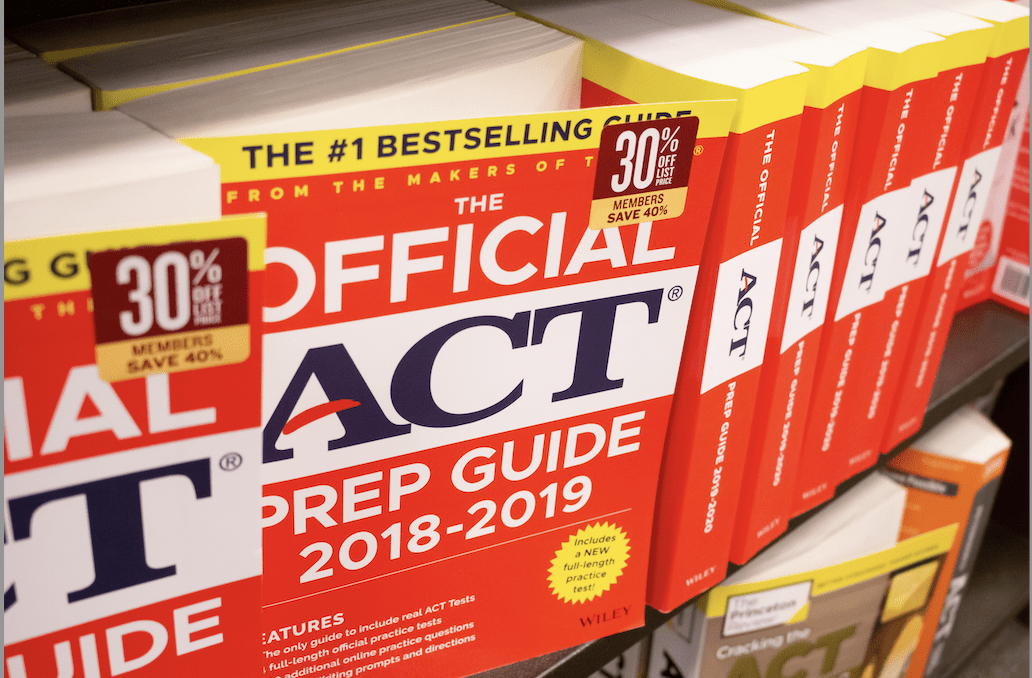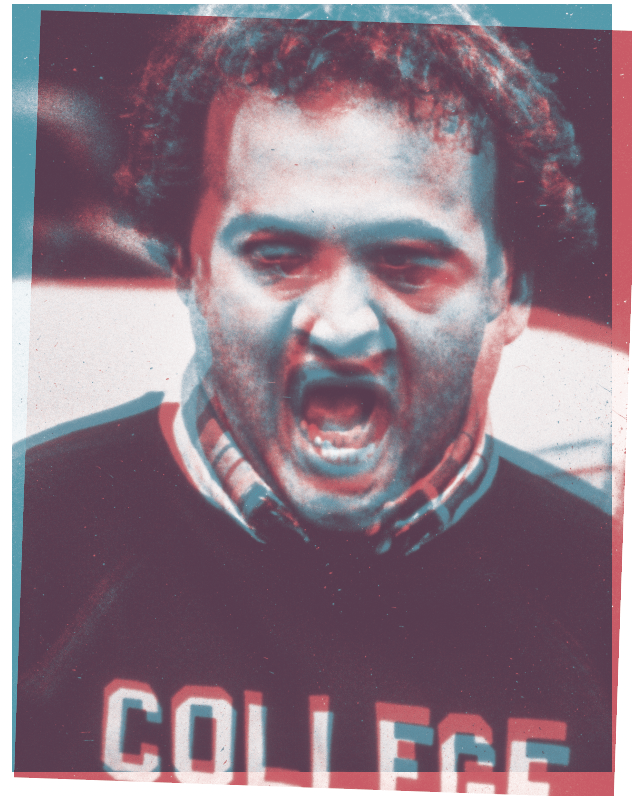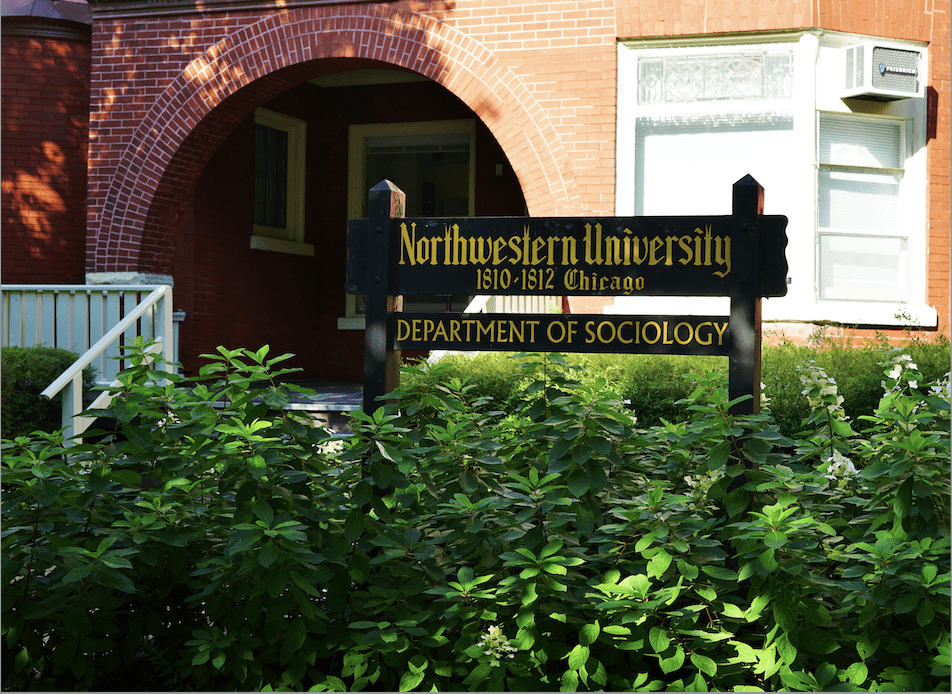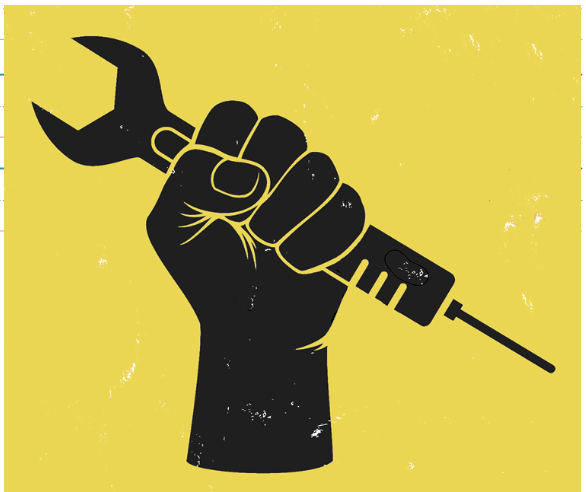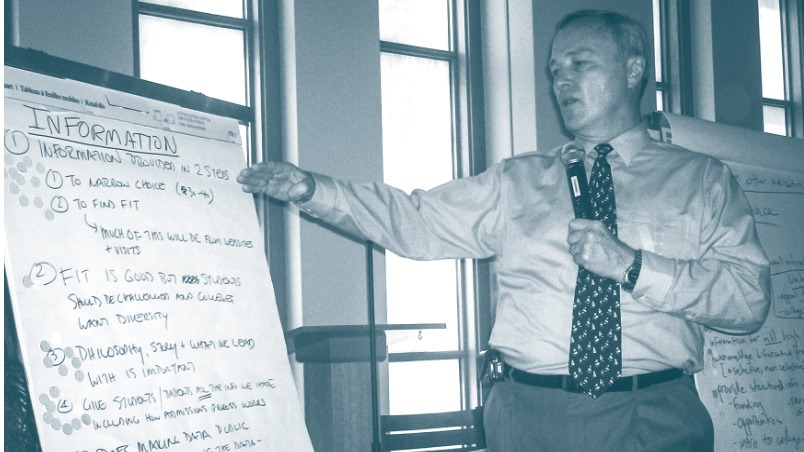The Great College Debate
Does a bachelor’s degree still make sense in the face of skyrocketing tuition and a dearth of jobs for some grads? A Luckbox panel of higher education experts share their thoughts.
What’s the valueof a college education, and is it worth the investment?
Mitch Daniels: We produced a study [with the Gallup organization] looking at the long-term value in intervals after college. A principal finding was it matters less where you go but how you go. Does the student choose a path that is likely to make him or her more valuable in the future? That’s not true of everyone. Some have gone to the wrong college in the wrong way at the wrong price. They might not have made the best choice on what to study and where to study it or may not have applied themselves in the best way. Cost control is only half the equation. It is value we are after. We’re out to produce higher education at the highest proven value.
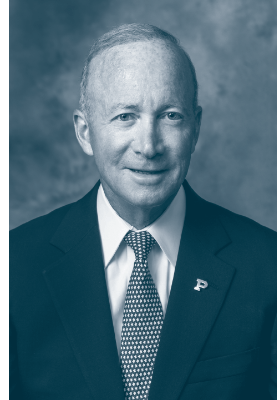
became president of Purdue University in
January 2013 after serving two terms as governor of Indiana. Breaking a 36-year string of increases, he led Purdue in a series of tuition freezes and also cut room and board costs by 5%. He’s set to retire from Purdue at the end of 2022. @purduemitch
Preston Cooper: The value of a college education depends on a number of factors. The most important of these is your major. Students who major in engineering, economics, computer science, nursing or business are extremely likely to fully recoup their investments, and then some. But those who study art, music, philosophy or psychology have a much lower chance of earning enough over their lifetimes to justify the amount spent on college.
Arne Duncan: I absolutely think it’s worth the investment. Historically, those who have had the chance to go to college have twice the lifetime earnings of those who have not had that opportunity, so it is vitally important.
James Altucher: I first wrote about this in 2005. I thought sending kids to college was a bad idea, not only for the kids but also for the parents financially and for society. We need to take another look at the value of college. Now, in today’s day and age, it’s a horrible idea. The real reason for me is I saw so many people in student loan debt, and this was causing major stress in their lives. During one of the most productive learning periods of their lives, they spent four years in college getting into massive debt instead of learning the skills that would help them for their eventual careers. Many college graduates are not doing jobs that correspond with their degree and also are underemployed, meaning they’re doing jobs that you don’t need a college degree for. For instance, 115,000 janitors have college degrees, and you don’t need a college degree to be janitor.
Tim Summers: Minority teens are more likely than white teens to say graduating from college is important to them. In fact, nine in 10 minority teens consider graduating from college important, compared with 75% of their white peers, according to a Washington Post-Ipsos poll. According to their findings, 92% of Black and Asian teens, along with 88% of Hispanic teens, said that graduating from college was important.
Why are college tuition costs continuing to rise, and what justifies increases of nearly five times the rate of inflation over the past 50 years?
Daniels: It’s been the path of least resistance. People charged more because they could. No one, until recently, had devised convincing ways of differentiating quality. It didn’t cost them customers like in most of the world. It often increased customers. People leading institutions had little background balancing books or managing expenses—many people come up through the system. In this environment, each year the opportunity was there to raise tuition. The only question was how much more.

Cooper: College costs are rising because more and more people want to pursue a college education. This surge in demand, fueled in part by expansions of federal student loans and grants, has enabled colleges to ratchet up their prices. Policies such as accreditation make it difficult for new institutions of higher learning to enter the market and drive prices down, while a perverse financial aid regime allows colleges to hide the prices that students will truly end up paying. It’s no wonder that an effective cartel with opaque pricing can raise the cost of tuition so high.
Richard Detweiler: Salaries are the largest single component of an institution’s budget and have increased more rapidly than inflation. Even though these institutions are nonprofit, they are deemed competitive. So, all of those things have driven higher education pricing to levels that are clearly not sustainable.
Duncan: It makes no sense. It’s infuriating to me, and it rises because it never gets challenged. It’s a very stoic, very inefficient marketplace with very few checks and balances. We never talk about expense and cost, and we also don’t talk about quality outcomes. So there are three legs of this triangle, and one of those legs is getting a lot of attention now. But if we really want to make higher ed more effective, more efficient, you really have to look at those three legs: One is debt, second is cost and expense, third is value.
There are two ways of looking at it: One is the federal government can and should do more. But the other part is to question whether there are any checks to skyrocketing costs, and there haven’t been. It’s been a blank check coming their way, and I think that’s part of what is structurally wrong with this equation. It always troubled me that we gave out literally hundreds and hundreds of billions of dollars every single year to universities with zero ability to have impact in terms of, or even transparency around, outcomes. And for me, that never made any sense. It was not a good use of taxpayers’ money. I didn’t feel good about that. If we’re going to look at higher education, I’d be looking at the intersection of those three legs of the stool.

providing outreach, therapeutic, education and employment opportunities for young men most likely to be engaged in gun violence. @arneduncan
Altucher: Normally, if you increase the price of something, fewer people want it. But more people than ever want to go to college. So what’s wrong with this equation? Well, the first problem is that the government backs these student loans to basically whoever wants one and who’s of the age of a college student. The second thing is you can’t get rid of student loan debt—it’s the one type of debt you can’t get rid of in bankruptcy. So the government has no risk, and colleges don’t have any risk. Because the government pays the college directly, the student has the risk. The student is the one who can’t get rid of the debt.
So, why do students take on this debt? Well, 18-year-olds just don’t have experience. There’s a biological reason: The prefrontal cortex is the part of the brain that evaluates risk and encourages risk-taking. Well, that’s not fully formed in humans until the age of 25. College-age students are 18 years old and they don’t have the brain function to properly assess risk. The system is set up so that they’re encouraged to take this risk because they don’t have to feel the consequences of this risk until many, many years later, when they realize, ‘Oh, I didn’t properly understand that there was a chance I would not be making the income to justify taking on this debt.’ So, colleges have the incentive to just keep raising the tuition because no one’s pushing back. At the very least, let’s take a step back and see what’s wrong before we continue perpetuating what seems like kind of a scandalous system.
How did the pandemic affect higher education and enrollment?
Cooper: The pandemic initially suppressed higher education enrollment—after all, who wants to pay full tuition for Zoom University? But it was surprising to many that college enrollment continued its slide even after classes went back in-person. The major reason for this is that the strong labor market has made it easier to get a decent-paying job even without a bachelor’s degree. In order to attract workers, many employers are removing degree requirements from middle-income job postings. People rightfully wonder why they should spend four years in college to get a job when good jobs are available right now. Hence, college enrollment has fallen.
Barbara Gellman-Danley: Teaching and learning, as well as campus ‘presence,’ will forever change. Those who were hesitant about online learning were catapulted into it during the pandemic. Campuses went remote. These pivots demonstrated what could be done differently, and there is no turning back.
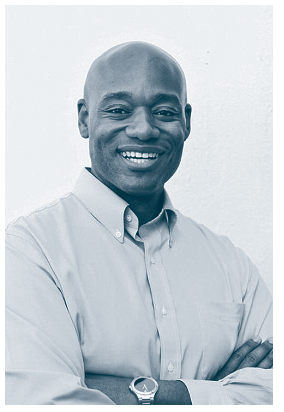
CEO of global strategic advisory firm Summers & Co.
and executive director of Third Horizon Initiatives for
Arizona State University, founded and leads Pocket,
an education technology platform.
@howhackersthink
Bachelor’s degrees from a variety of colleges and universities have demonstrated a negative return on investment. How would you describe those results, and do you think schools should notify students of each major’s ROI?
Cooper: In my study, I estimated that 28% of bachelor’s degrees do not provide a positive return on investment. This means that the costs of college—tuition, time spent out of the labor force and the risk of not completing your degree—do not outweigh the financial benefit of increased earning capacity. This means that a bachelor’s degree is worth it most of the time, but there is a significant subset of degrees where the investment doesn’t pay off. This is something that students should know about before dropping tens of thousands of dollars on a college education. I’d argue that disclosure of earnings outcomes for a student’s chosen program should come before students make a commitment to a particular college or program.
Daniels: I do think, with the appropriate cautions, this is very important information, and there is an initiative nationally to do this. We certainly try to understand it and share it with our students. This is historical data and does not accurately predict someone graduating today. There are some areas to be very careful of before you spend your time and money.
Detweiler: That’s the wrong focus. If one assumes the only reason to get a higher education is to have higher income, then one needs to approach the question of education beyond high school differently. A student should look at college majors that generate the largest ROI and at programs, collegiate or not, to become plumbers, electricians, etc., because the ROI for those is going to be far greater than almost any college major. The real question is what a young person is going to do in their lives and how much is that worth? But if we take merely the ROI approach, we’re going to have no teachers, no preachers, no social workers, no risk-takers in creating new things.
How would you reform the student loan industry?
Cooper: There should be hard limits on how much students and their parents can borrow from the federal government for college. Moreover, the government should stop providing loans for programs where there is no return on investment. We know that students’ ability to repay their loans is strongly linked to how much they earn after graduation—so if we restrict lending to high-quality programs, we can largely solve the student loan crisis.
Detweiler: First, a student loan should be dischargeable under bankruptcy. It is a unique kind of debt because if a student’s life develops in a way where they cannot afford their loan payments, that doesn’t make any difference. They still owe that money. If a court determines a person should not be required to repay that debt, they ought to be able to be relieved of it. Second, student loans ought to be managed entirely by the federal government or state government, not outsourced to profit-making companies. They are virtually guaranteed loans, and when you begin adding profit to a reasonable loan rate, it makes them far less affordable. Third, base the rates on percentage of income or discharge or reduce them if a student goes into a society-serving, low-income kind of profession, like teaching. Or have a certain number of years after which the balance of the loan debt is discharged.
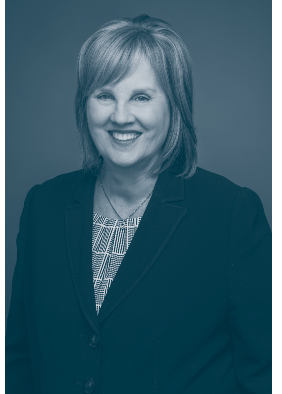
was named president of the Higher Learning
Commission, a higher education accrediting
agency, in 2014. The organization focuses on
quality assurance and outcomes-based assessments. @hlcpresident
Altucher: I would get rid of all student loans—then you’ll find out the true value of colleges. Everybody will start complaining that it’s going to create income inequality because super rich people will be able to afford college, and the middle class will no longer be able to afford college. But that’s simply not true. Right now, there’s $1.7 trillion in student loan debt, and you’re graduating a large number of people who have critical life consequences because they got into this debt. Then there’s people who didn’t go to college, who are not in debt and start making income right away at the age of 18. So what’s happening is the middle class is being destroyed by student loan debt. It’s actually increasing income inequality and what’s creating this haves-and-have-nots country we live in now.
If you just eliminate government backing of student loans, we will quickly find the value of a college tuition because now it’s a regular market, and it will act like any other market. People will start looking at alternatives very quickly. If I was a young person of 18 and I couldn’t afford college, I would start looking and I’d see plumbers at the age of 18 can start making over $70,000 a year when the average bachelor’s degree graduate makes $64,000 a year. The decision is too easy for people. No one’s assessing the proper value of a tuition because it’s unclear with the government backing it and colleges raising it every year faster than inflation. Bad decisions are being made. My argument is if you get rid of the backing of student loan debt, fewer bad decisions will be made.
Should President Joe Biden forgive all student loan debt? If not, what would be an adequate amount?
Daniels: I think it’s a very bad idea for multiple reasons. It’s grossly unfair to those who fulfilled their obligations and unfair to the taxpayers who never got to college in the first place. The more money the government floods into higher ed, the easier it is for the institution to pocket and raise costs. A great irony is this generation is being treated so unjustly by their elders, dumping unimaginable amounts of government debt, and will get a bigger tab and get the bill later. It’s not well-advised, and I don’t think he has the power to do it.
Cooper: Debt forgiveness is not a real solution to the student loan mess. The federal government is on track to make over $1 trillion in new loans over the coming decade, and unless you address that reality, debt forgiveness today is nothing more than kicking the can down the road. Instead, we should focus on policies to make it easier for current borrowers to repay their loans, such as promoting income-based repayment plans and reducing the penalties for default.

Detweiler: Loan debt forgiveness should be linked to income, not to some fixed amount. So, if a graduate is making $30,000 a year and has accumulated $50,000 of debt, that’s not affordable. Assuming that person is attempting to be gainfully employed, that entire $50,000 should be discharged. If a person has become a mortgage banker and is making hundreds of thousands of dollars a year, then there’s none of that debt that ought to be forgiven. They ought to be able to repay their debt.
Duncan: It’s absolutely a step in the right direction. I’m a big believer in public service loan forgiveness for folks who go into teaching, go into social work, or they work in the community where they’re not going to have lucrative careers but they’re going to make a huge difference. But not everybody needs their loans forgiven. If you’re making a ton of money coming out of college, that’s a different story. But yes, providing some relief would obviously be extraordinarily helpful in a tough economic time. But I just want to emphasize that it’s a starting point. We either put a Band-Aid out there, or we really try and fix the system. I do think there’s a chance to try and fix the system. I’m more interested in how we look at this holistically, how we look at this comprehensively, systemically—not just look at that slice of the pie.
Altucher: It’s really unfair. First off, he’s not going to do that because that’s equivalent to a $1.7 trillion stimulus package. We saw what happened with the COVID-19 stimulus packages, as needed as they were. And I do believe that they were needed—the risk was runaway inflation. Now with the worries of inflation, if Biden suddenly forgives all student loan debt, you’re going to have more inflation, so I don’t think he’s helping matters if he were to do that.
Summers: How many of us know someone who has successfully paid off all of their student loans, especially if they’ve pursued advanced degrees? All of this points to a long-term issue—borrowers struggle to make payments toward the loans and this means that in the long run, they pay more for their loans. For students who lack the finances to pay off their loans, they’ll remain in debt. Minority students are disproportionately impacted. If we want a bright future to look toward, we need to invest in it.
If you could tear down the entire university system and start from scratch, would you favor classroom instruction, online courses, a hybrid of those two or some other model?
Gellman-Danley: All of the above. I am very impressed by the work of Arthur Levine and Scott Van Pelt in their book The Great Upheaval: Higher Education’s Past, Present, and Uncertain Future. The basic tenet is that we built a higher education system that was established in an industrial era, and we now must evolve into the knowledge industry. I firmly believe there is an emerging credential market that will either strengthen higher education or displace many institutions. Students want agility and expediency in earning credentials, whether they are certificates, licensure or full degrees. Institutions that do not respond will be left behind.
Duncan: The goal is degrees that help people achieve their dreams. So if you’re leaving college with more debt than you can afford to pay back, based upon the quality or lack thereof of your degree, we’re actually leaving people in a worse financial situation. For me, the whole goal of college has to be to break cycles of poverty and climb the economic ladder and increase social mobility. For me, the perfect university should be a school that’s focused on inclusion, not exclusion, that’s focused on completion, not just access, but is creating real value in terms of the quality of the education and the meaningfulness of the degree.
Summers: All of the above. I’d meet learners where they are. It’s important that we provide as many opportunities to learn as possible, and this comes back to access. I’m inspired by ASU’s charter, which calls for serving anyone with the desire to learn. That means that we must meet the learners where they are, regardless of their preferred modality.
What alternatives would you like to see for students who choose not to attend college?
Cooper: What students want most from college is economic mobility—they want to be able to get a job that pays a decent salary. But there’s no reason that economic mobility has to come from a college. There are many promising alternatives—apprenticeships, short-term ‘bootcamps,’ vocational schools and work-based learning programs. The main question before us is how to ensure those alternatives operate on a level playing field with traditional colleges and universities because traditional schools right now get most of the funding.

Detweiler: We make a mistake by believing that everybody should be going to college. When you look at a country like Germany that has a highly developed apprenticeship model, that ends up being a government responsibility. We ought to develop far more of those kinds of models in the United States, so that students who are interested in alternatives to college are given opportunities to develop meaningful, skilled vocations.
Altucher: I think fewer and fewer companies are requiring college degrees, and Google is a great example. They aligned with 120 other companies that will accept people who don’t have a college degree but do have a Google certificate, which they earned at Coursera for $39 a month. The gig economy is where people are finding independent means to earn sources of income, and that economy is growing 17% a year. People who drive Ubers, people who do web design, people who do consulting or coaching—that’s grown from a $200 billion a year economy to $450 billion a year. We see people are starting to consider alternatives.
Gellman-Danley: There are alternatives to college, which include certificate programs, certifications like the ones from Microsoft and Google, combinations of courses-only versus a full degree, online education offered by a variety of sources—both within and outside of higher education—consortium models, etc. Higher Learning Commission is publishing an online student guide, entitled Ask the Right Questions: A Student Guide to Higher Education.
Summers: We want to ensure mobility and portability of learning so that learners can take their achievements with them anywhere. This includes stackable representations of their learning via advanced achievements like digital credentials. I expect that we’ll see learners constructing learning pathways that include traditional education, professional certificates, badges representative of knowledge and skills, and much more.
What do you predict for higher education?
Duncan: This is a place where we need radical change, we need transformation. Today, most Americans literally do not go to college, and the vast majority of Americans don’t graduate from college. Those two facts are what keep me up at night. How do we provide a lot more opportunities for a lot more people whose families had been locked out of the college process forever, where there’s no history of access? What chance do they have in a globally competitive economy?
I worry about us having a caste system, and the only way to avoid that is to have a system of higher education that increases upward mobility, increases social mobility, increases job opportunities—that’s the system we need to embrace and hold ourselves accountable for, whatever college looks like post high school. For me, the divide in our country is really between the education haves and have nots. That’s what scares me. Higher education should be the great equalizer. But if it’s not, it actually exacerbates the divide between the haves and the have nots and it perpetuates inequity, inequality, and locks in that caste system.
Altucher: I do think the rise of online learning and alternatives to college and fewer companies requiring a degree will be the future. Basically, the need to go to college is going to end, and the rise of the gig economy—which doesn’t require a college degree—is going to bring down the tuitions and the kind of monopoly that college education currently has.
